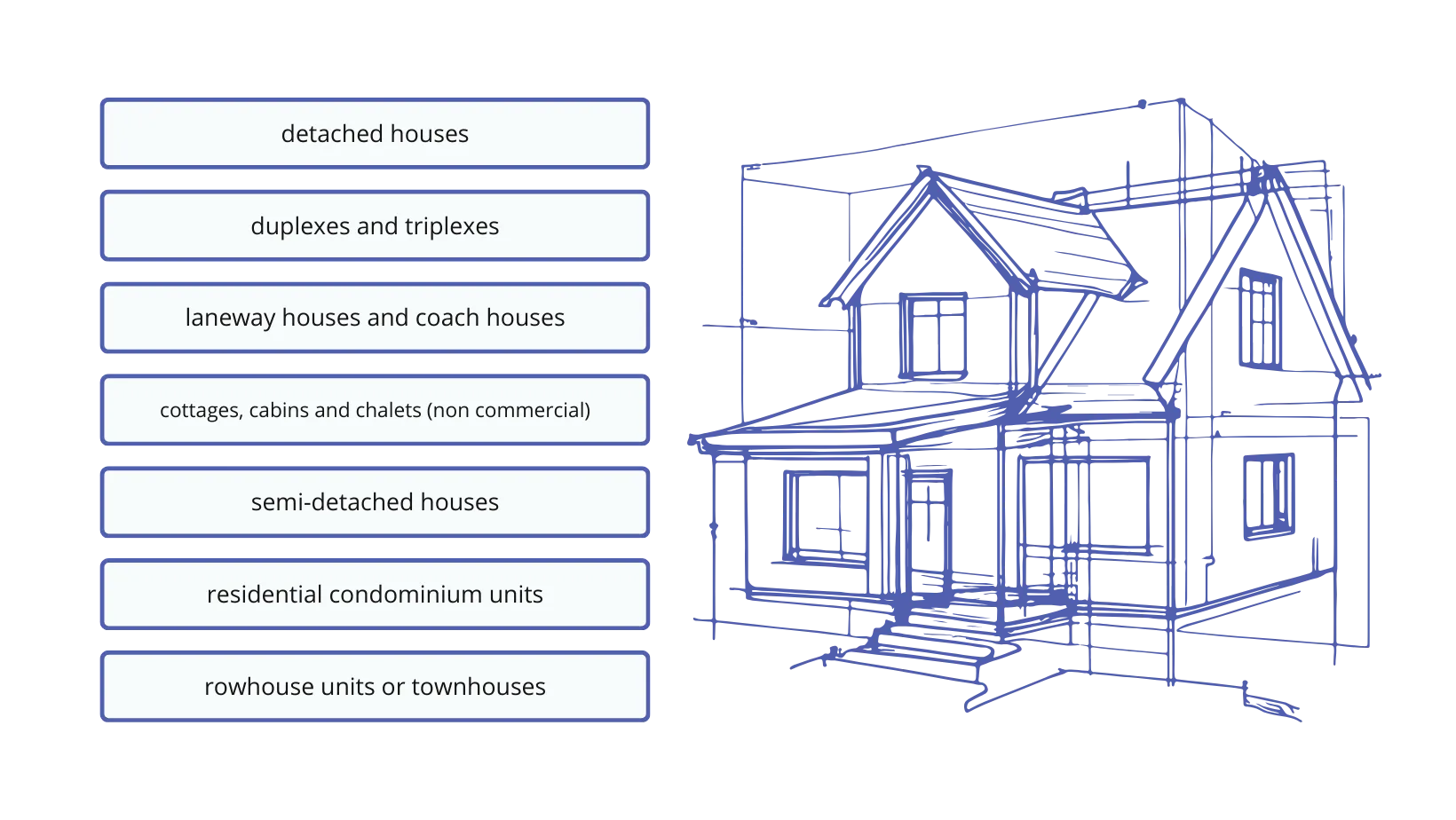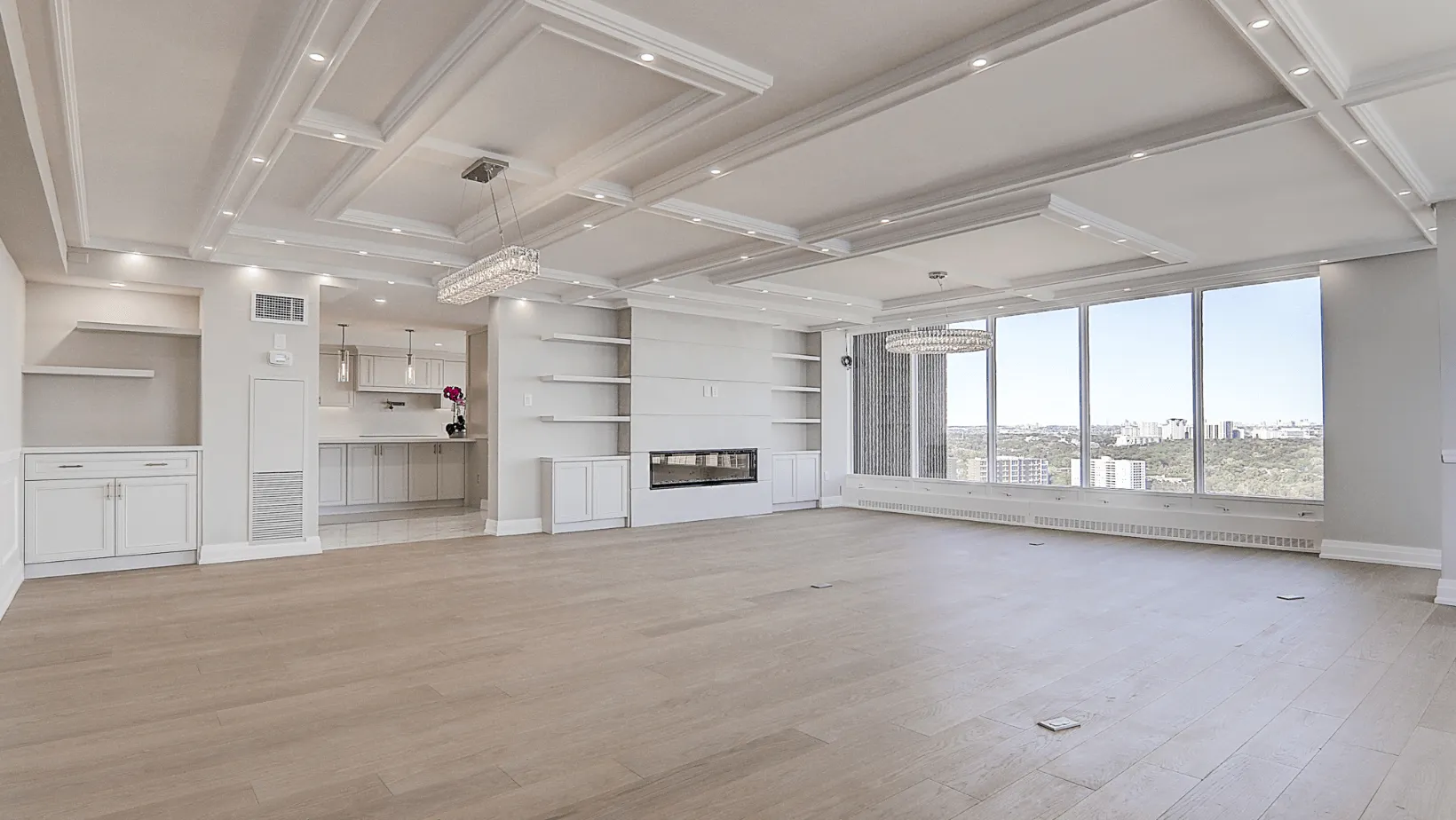Taxes and Empty Homes: Navigating the Underused Housing Tax Landscape in Canada
On January 1, 2022, the Underused Housing Tax (UHT) came into effect. The Underused Housing Tax (UHT) is a tax imposed on properties that are deemed to be underused, aiming to encourage efficient use of housing resources.
This annual tax targets the owners of vacant residential properties, and it applies to foreigners, non-permanent residents, and Canadians who own properties through trusts, private corporations, or partnerships.
Which Properties does the UHT Applies to?
The Underused Housing Tax applies to residential properties in Canada. There are so many definitions and specifications out there that it is sometimes hard to understand what the government is trying to accomplish. To help you further understand, here are some examples of residential properties as described on the CRA website.

Understanding if you Need to File the UHT
The Underused Housing Tax applies to owners of residential properties in Canada as at December 31 of a calendar year.
Affected Owners
Affected owners includes:
- Individuals who are not citizens or permanent residents of Canada and own residential property in the country in any capacity.
- Citizens or permanent residents who own residential property in Canada, either as trustees of a trust or as partners in a partnership.
- Corporations incorporated outside Canadian laws.
- A Canadian corporation whose shares are not listed on a Canadian stock exchange designated for Canadian income tax purposes.
- A Canadian corporation without share capital.
Exemptions
Certain individuals and entities are exempt from the Underused Housing Tax. Excluded owners have no obligations under the Underused Housing Tax Act.
You might be interested: All you need to know about the City of Toronto’s Vacant Home Tax (VHT)
Therefore, the government has implemented a variety of housing policies and plans, with a focus on addressing the growing need for housing. These initiatives aim to guarantee that the immigrants they attract are provided with suitable living arrangements.
By encouraging the construction of purpose-built rental properties, the government stimulates real estate development and ensures that the housing market can keep pace with the demographic shifts brought about by immigration.
How is The Tax Calculated?
The UHT is calculated as 1% of the “taxable value” of the property, which is determined by multiplying the taxable value (or fair market value) by the owner’s ownership percentage.
The taxable value of a property for a given calendar year is defined as the greater of two factors:
Assessed Value for Local Property Taxation Purposes
This refers to the value assigned to the property by local authorities for the purpose of property taxation. Local property tax assessments are typically conducted periodically to determine the value of properties within a jurisdiction. The assessed value serves as one component in calculating the taxable value for UHT purposes.
Most Recent Sale Price on or Before December 31 of the Year
If the property has been sold during the calendar year or in the recent past, the taxable value is determined by the most recent sale price on or before December 31 of that year. This reflects the market value of the property as established through a recent transaction.
Example: To calculate the underused housing tax payable, the individual determines that the taxable value of the property is $600,000 (which is the greater of the assessed value of $600,000 and the property’s most recent sale price of $500,000). Also, the individual determines that their ownership percentage is 100% because they are the only owner of the property.
The underused housing tax payable by the individual for the 2022 calendar year is $6,000 (1% × $600,000 [taxable value] × 100% [ownership percentage]).
Updated Example | Canada.ca

You might be interested: Preparing For The Tax Season – Rental Income Tax Return
The Consequences of not Filing your UHT
Failing to file a tax return on time can have financial consequences in the form of penalties, and the severity of these penalties is determined by specific criteria. The penalty for late filing is calculated as the greater of two amounts:
Fixed Amount Penalty:
- For individuals, the fixed amount penalty is $5,000.
- For corporations, the fixed amount penalty is higher, set at $10,000.
This fixed amount serves as a baseline penalty that applies regardless of the tax liability associated with the return. Even if the tax owed is less than the fixed amount, the taxpayer is still liable for this predetermined penalty for failing to submit the return on time.
Percentage-based Penalty:
- The percentage-based penalty is calculated as 5% of the tax owed, plus an additional 3% for each complete month that the return is late.
This part of the penalty is directly tied to the amount of tax liability associated with the return. The 5% initial charge is based on the total tax owed, and an extra 3% is added for each month that the return remains unfiled.
For example, if an individual or corporation owes $50,000 in taxes and fails to file the return on time, the penalty calculation would include both the fixed amount and the percentage-based components. In this case, the penalty would be the greater of $5,000 or 5% of $50,000 (which is $2,500), plus an additional 3% for each complete month of delay.
It’s important to note that these penalties are designed to encourage timely and accurate filing of tax returns. Taxpayers are encouraged to adhere to the filing deadlines to avoid incurring these penalties, as they can significantly increase the overall financial obligation associated with the tax return.
New Deadline for Underused Housing Tax Filing: April 30, 2024
The UHT deadlines have been extended once again. The new deadline is April 30, 2024, for filing returns and settling the UHT for the 2022 calendar year without incurring any penalties.

Why are Homes Left Vacant?
Understanding why people leave their homes vacant is not only important for gaining insights into the perspective of property owners and investors but also for assisting the Canadian government in better understanding the reasons influencing these decisions and coming up with better solutions.
Fear of Tenant Evictions
Some landlords may find it too risky to take on tenants due to disputes, especially in Ontario, where eviction can be challenging even in instances of criminal activity or property damage. As a result, property owners prefer to leave the property empty, freeing themselves from tenant-related concerns.
Their Investment Strategy
Some property owners choose to keep homes vacant to benefit from rising property values, strategically waiting for the real estate market to provide higher selling prices. This long-term investment strategy prioritizes potential capital gains over immediate rental income.
Second Homes or Vacation Properties
Another reason for homes being left vacant is that some property owners may designate their properties as second homes or vacation homes. In scenarios where landlords split their time between different locations, such as having a primary residence in Toronto for work purposes and a secondary home in a different city or a vacation destination, the property may remain unoccupied for significant periods.
Property owners may choose to keep their second homes available for personal use during weekends, holidays, or when work requires them to be in another location. As a result, these homes may experience extended periods of vacancy, contributing to the overall issue of underutilized housing.
Construction Delays
Delays in obtaining necessary permits and approvals for ongoing development projects contribute to the challenge of vacant homes. Property owners may face bureaucratic hurdles and extended waiting periods, impeding their ability to proceed with construction or renovations and, consequently, leaving properties unoccupied.

Why Some Landlords Still Fail to File UHT?
The complexity of the process
One significant obstacle standing in the way of UHT filing is the misconception of its complexity. Many property owners find the UHT filing process to be complicated and time-consuming, leading to reluctance to adhere to the new regulations.
To alleviate concerns, the Canada Revenue Agency (CRA) provides a user-friendly online tool to help property owners determine if they are affected owners and need to file an annual return. The tool guides users through a series of questions, making the determination process clear and concise.
Overseas Landlords Unaware of Canadian Tax Obligations
In some cases, many landlords live outside Canada and may not even be aware of their obligation to pay Canadian taxes. This lack of awareness adds an extra layer of complexity and underscores the importance of educating property owners, especially those residing abroad, about their tax responsibilities in Canada.
Conclusion
It’s essential to understand the implications of the Underused Housing Tax (UHT) to effectively navigate its landscape. As the government addresses the housing crisis, landlords must stay informed and explore methods to fulfill their responsibilities to avoid penalties and ensure a smooth management of their properties.
For more information on Underused Housing Tax (UHT) visit Canada Revenue Agency.




